Recent events in Ukraine have their origins in a long history of strife. If we in the West are to respond appropriately, we should understand just what it is we are up against.
It is commonly held that “Ukraine” derives from the Slavic “ukraina” meaning “borderlands.” It is fitting, then, that much of the history of Ukraine involves the coming and going of various empires. Then, as now, Ukraine’s identity is largely defined by its ethnic diversity; first through centuries of conquest and migration and then by design.
In the late 1700s, Catherine the Great ruled over a Russian empire, including Ukraine. Inspired by Enlightenment ideas, she invited Germans, Greeks, Serbs, Bulgarians, and more to reap the bounty of the borderlands; including vast tracts of the most fertile soil on earth.
So, when we speak of modern Ukraine and what it means to be Ukrainian, we are speaking of ethnic Ukrainians but also of a wider collection of people united by the land and, often in resistance to Russia, the Ukrainian language itself.
After a variety of groups struggled for independence during the tumult following World War I (1914-1918), the land we speak of today as Ukraine was absorbed into the Union of Soviet Socialist Republics (USSR or Soviet Union) and was known as the Ukrainian Soviet Socialist Republic or the Ukrainian SSR.
While there was much fanciful talk of creating a socialist utopia in the Soviet Bloc, the rise to power of Joseph Stalin in the late 1920s crushed those hopes under a Russian boot. In an attempt to reform Soviet society, a series of state programs collectivized agriculture and nationalized industry.
While the Ukraine SSR produced enough crops to feed an empire, Stalin wanted to send a message to these prosperous, non-Russian farmers. The grain they harvested was used to feed others and from 1932-1933 millions of Ukrainians died during a famine known as the Holodomor.
The story of this lesser known twentieth century genocide is told by Atlantic staff writer and Pulitzer Prize-winning historian Anne Applebaum in Red Famine: Stalin’s War on Ukraine (2017).
While the precise causes of the famine are debated, it is clear that race and ethnicity played an important role. During the Soviet era, Russians ruled with an iron fist.
Nazi Germany invaded the Soviet Union in the summer of 1941 and Ukrainians briefly swapped their communist dictator for a fascist one. The abuses under German occupation mimicked those under Stalin, with a special disregard for Ukrainian Jews. Some estimates indicate that, from 1941-1944, one in ten Ukrainian civilians perished.
In the summer of 1943, the Germans and Soviets clashed just east of Ukraine in what turned out to be Germany’s final offensive effort on their Eastern Front. Today, as Vladimir Putin launched the most recent invasion of Ukraine, he did so from a staging area that was the site of the largest battle in human history involving millions of men and thousands of tanks. History does, indeed, repeat itself. (See: Battle of Kursk.)
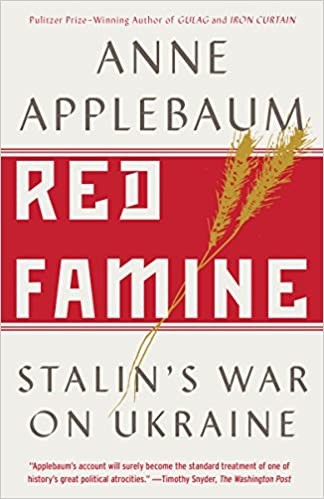
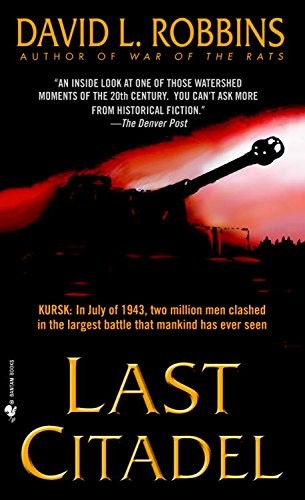
A very personal and thoroughly researched historical novel about this massive battle is told in Last Citadel (2003) by David L. Robbins. Perhaps offering some insight into the attitude of Vladimir Putin’s soldiers today, much of the action in Last Citadel takes place from the perspective of a father and son team operating a Russian T-34 tank. Their relationship illuminates the humanity of those who fight Russia’s wars as opposed to the nefarious motivations of those who have ordered them into battle; a distinction sometimes difficult to make when the bullets are flying.
By the spring of 1944, what remains of Nazi Germany’s war machine is in retreat while continuing to clash with the advancing Soviet army. As the battle lines moved west, Ukraine pulsed with violence.
This is the setting for Mark Sullivan’s The Last Green Valley (2021). In a novel inspired by true events, Emil and Adeline Martel, their small children, and extended family—living in southern Ukraine — have decisions to make while the war rages all around them.
As ethnic Germans, the retreating army has offered to protect the Martels if they agree to return to Germany as part of Heinrich Himmler’s plan to preserve German racial purity. Having lived in Ukraine for more than a century, the Martel family has no interest in returning to Germany under Adolph Hitler. This becomes increasingly clear as we learn through flashback of Emil’s haunting experience with Nazi soldiers who demanded mortal proof of his allegiance to Germany.
Unfortunately, staying on their farm will place the Martels back under Soviet/Russian rule in an environment where German-Ukrainians will not be very welcome.
Offering a glimmer of hope, the Martels receive word that the US and British armies have gained a foothold in Italy. Emil is convinced that the family should do all that it can to reach the Allied forces as they approach Germany.
As Emil tells Adeline, “We can stay and wait for the bear that we know will kill us, or rape you and kill me and the boys, or imprison us all in Siberia. Or we can run with the wolves that will protect us until we can make our escape west. Escape the war. Escape everything.” Run from the bears while hiding out with the wolves.
While the Martels choose to flee westward, many Ukrainians are forced to accept their re-subjugation by the Russians. From 1945-1991, Ukraine continued as a Soviet Republic during a decades-long Cold War with the West.
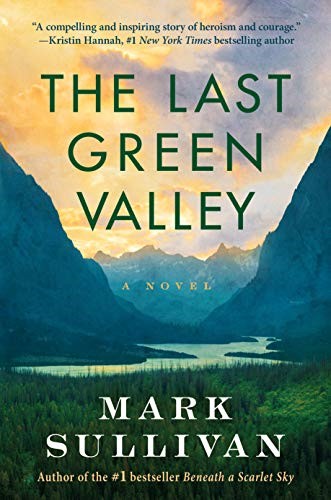

The story of an independent Ukraine begins in 1991 after the collapse of the Soviet Union. The modern dynamics of Ukraine’s recent history and its strategic importance to the entire world is explored in Ukraine: A Nation on the Borderland (2018) by German historian Karl Schlögel.
During the past three decades Ukraine has risen out of Russia’s shadow and into the light of an independent and autonomous nation and, much like the United States, as a multi-ethnic electoral democracy. While many of the USSR’s former republics joined the North Atlantic Treaty Organization (NATO), Ukraine has not. The Western alliance now includes 28 European countries, the US, and Canada. Potential Ukrainian membership in NATO is a divisive issue at the heart of Russia’s invasion in 2022.
As Russian tanks once again bear down on Ukraine, the reaction of the United States and its allies will not only determine the fate of that country, it will serve as a measure of our resolve and commitment to a stable world order.
The immediate reaction to the invasion of Ukraine has been almost universally supportive of the Ukrainian people. However, as Schlogel writes, “One prerequisite for effective and sustained support for Ukraine is a better understanding of its emergence as a nation and its natural and cultural diversity.”
I think books can help here.
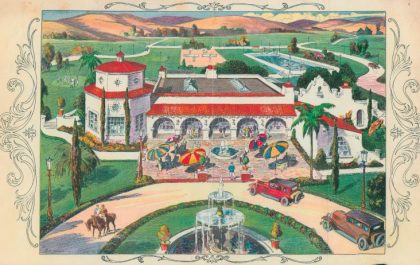

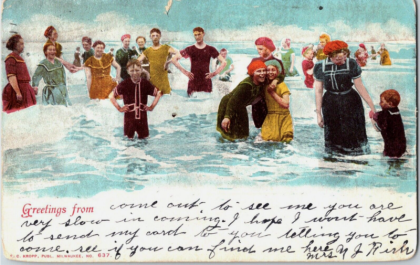
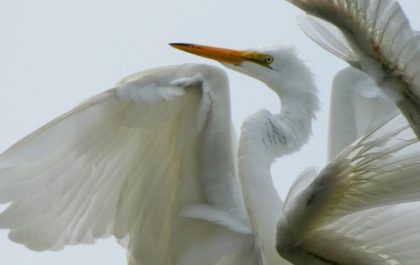








What about the coup of 2014 – in which the United States helped orchestrate the overthrow of the democratically elected president of Ukraine – Viktor Yanukovich – so that the U.S. could install a NATO friendly puppet president?
What about the civil war in Ukraine that has been ongoing for 8 years – since 2014 – in which the current government of Zelensky has been shelling Eastern Ukrainians (ethnic Russians) in the Donbas Region killing over 14,000 people?
What about the U.S. and NATO continuously threatening to bring Ukraine into NATO in order to build military bases and missile systems on Russia’s border?
It appears you left out some of the most critical history regarding Ukraine and the conflict ragging there now.
Source please?
Kyle,
I appreciate your comments and questions and have enjoyed putting together this reply.
I would not characterize the ouster of Viktor Yanukovych as a coup. Of course, Yanukovych has characterized his ouster this way, as have a number of Ukrainian oligarchs who have profited from his rule, and so has Vladimir Putin. As far as I see it, Yanukovych fled Ukraine under the threat of impeachment and his departure was viewed favorably by a large majority of the Ukrainian people.
This New York Times article summarizes these events and offers a great deal to confirm that Yanukovych was no friend to the people of his country. While you are free to view his ouster as an injustice, I see it as a step towards a more democratic and less-corrupt Ukraine.
https://www.nytimes.com/2014/02/23/world/europe/ukraine.html
There is some dispute about how to characterize the fighting in the Donbas. Referring to it as “civil war,” as you do, suggests that this is an internal fight among citizens of the same nation. This language also deflects Russia’s involvement. You are correct to point out that there has been some bad behavior; on both sides, by the way.
As far as Zelensky’s role in this one, he views the uprising in Donbas as a separatist movement and a threat to sovereign territory.
I found it interesting that much of the reportage on this conflict occurred in 2014 and 2015, despite the fact that the fighting continues. I attribute this to the media appealing to an audience with a short attention span. You are correct to point out the relevance of this ongoing struggle to the matters which now confront us in 2022.
This Amnesty International article from the very beginning of the conflict serves as a harbinger of things to come.
https://web.archive.org/web/20150912102834/https://www.amnesty.org/en/press-releases/2014/09/ukraine-mounting-evidence-war-crimes-and-russian-involvement/
As far as the “U.S. and NATO continuously threatening to bring Ukraine into NATO” I simply do not see the “threats” you speak of. Yes, there has been much discussion about bringing Ukraine into NATO. While I understand that this development would be a threat to Russia, I see the expansion of NATO as a critical element in maintaining a stable world. While we can certainly identify NATO misdeeds, I believe that the overall mission and progress of NATO has been a force for peace since the end of WWII.
The significance of an expanding NATO is explored in Fascism by the recently-deceased Madeline Albright. She, of course, sees NATO as a force for good. I do too.
Also, my understanding is that Ukraine does not yet qualify for membership in NATO. This article from the Miami Herald sums up the situation nicely.
https://www.miamiherald.com/news/nation-world/world/article258774458.html
While all of the events you refer to are important aspects of Ukrainian history, my column focused on the historical development of Ukraine as a sovereign nation; which occurred in 1991 and then with international approval and legal mandate in the Budapest Memorandum of 1994. Ukraine agreed to give up its nuclear arsenal in exchange for sovereignty guaranteed by the US, the UK, and Russia… and Russia.
Here is a piece from NPR that breaks down the Budapest Memorandum.
https://www.npr.org/2022/02/21/1082124528/ukraine-russia-putin-invasion
Russian intervention in Donbass, Crimea, and now much of the rest of the country is a violation of Ukrainian sovereignty and a threat to world peace. And the entire affair is being directed by a singular individual bent upon reclaiming some distorted sense of Russian empire.
The precursors to larger scale Russian invasion in 2022 that you mention should have been a part of my column have been covered quite thoroughly in recent weeks. My goal in A Ukraine Brief was to offer an historical perspective to these events, not repeat what has become quite familiar… for those who attend to these things, anyway.
Thanks so much for taking the time to write and comment upon my thoughts. I see this as high praise, indeed.
Peace to You and Yours,
Jimmy P. Morgan
Nice run-down! Some books worth reading here.
Yes, they are worth reading. Thanks for commenting, Oleg.
Jimmy